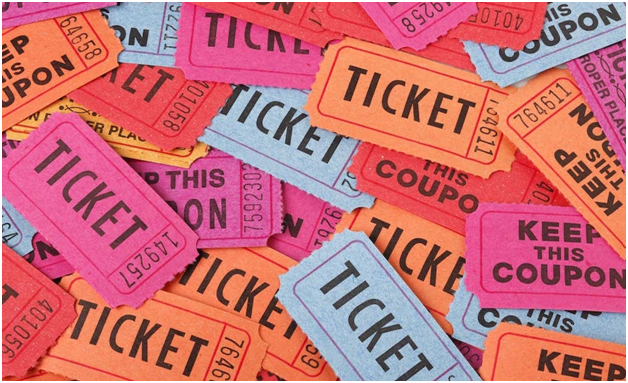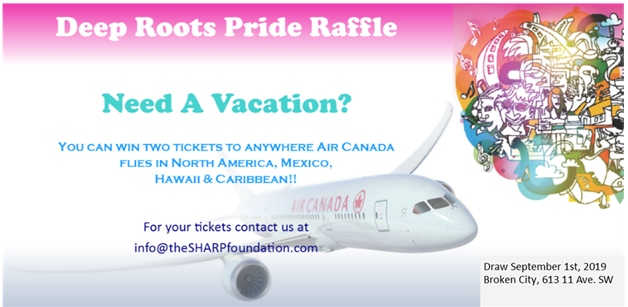What Is a Raffle and How to Run One in Canada?

Have you ever played a Raffle game? Raffle is a type of lottery in which people obtain numbered tickets, and each ticket having the chance of winning a prize. Then at a set time, the winners are drawn at random from a container holding a copy of every number. The drawn tickets are checked against a collection of prizes with numbers attached to them, and the holder of the ticket wins the prize. The raffle is usually played to raise funds for a specific charity or event.
Raffle in Canada

Canada allows charitable organizations, and only charitable organizations, to hold raffles as fundraisers, and the details vary by province.
Raffle laws are handled by three different groups: the Criminal Code of Canada, the Competition Bureau Canada, and local municipalities.
The raffle laws in each Canadian province
Ontario
Depending on the size of the prizes to be awarded, charitable organizations in Ontario need to apply for either a municipal or a provincial license, according to the Alcohol and Gaming Commission of Ontario (AGCO). Businesses must prove eligibility; to qualify, they must be a charitable organization that has been in business for at least a year and which has a location in Ontario.
British Columbia
Raffles in British Columbia are regulated by the Gaming Policy and Enforcement Branch (GPEB) of the province’s government. To be eligible, you must have a not-for-profit or community organization that is raising funds to benefit the community. You must apply for a license in advance.
Quebec: Three types of organizations can run raffles in Quebec: those donating the money to charity, people who are operating a fair or exhibition, and vendors at a fair or exhibition with a concession license. Get more details from Canada Ticket Printing.
Alberta
Raffles in Alberta are managed by the Alberta Gaming & Liquor Commission (AGLC). Non-profit and community organizations must first prove they are eligible, and then they must apply for a license before running a raffle.
Nova Scotia
Charities, religious organizations, and non-profit community organizations can legally run raffles in Nova Scotia if they apply for a license in advance. See the Nova Scotia Alcohol and Gaming Division website to apply or to get more information.
Saskatchewan
Before you run a raffle in Saskatchewan, you need to submit documentation to the Saskatchewan Liquor and Gaming Authority (SLGA). You’ll need to prove that your organization is an eligible non-profit and provide some information about the raffle. Your license fees will depend on the size of the raffle you are running.
Newfoundland and Labrador
Several types of groups can run raffles in Newfoundland and Labrador, according to the Newfoundland and Labrador government website. Examples include nonprofit fire departments, church groups, colleges, scout groups, and more. A specific person in each organization must apply for a license in advance.

Manitoba
The Liquor, Gaming, and Cannabis Authority of Manitoba allows charitable and religious organizations to run raffles; they also allow one-off raffles for certain social occasions. All raffles must be licensed in advance.
Prince Edward Island
Prince Edward Island has very specific requirements about who can run raffles. For example, only non-profit and charitable organizations can apply, and the funds raised by the raffle must be used for specific causes. You can read more about them on the PEI government website.
New Brunswick
In New Brunswick, legal lotteries may be held only by charitable organizations, and the money raised by the raffle must be used for a charitable object or purpose. If the value of the prizes to be raffled off is less than $500, you can apply for a simple permit. Otherwise, you’ll need to get a license in advance. See the New Brunswick Government website for more information.
Therefore before you think of holding a raffle in Canada you need to do a bit of research on the province and municipality where the raffle is to take place, and make sure to adhere to the rules that are set in place there. In the Province of Ontario, the amount of money to be awarded in prizes determines whether the raffle requires a municipal licence or a provincial licence. If you have any questions about whether your raffle is legal or whether you have gone through all of the necessary steps, it’s always wise to consult a lawyer who is knowledgeable in the subject. Making a mistake can be a costly, and even criminal, offence.
Finally remember playing raffle has it own set of rules to follow. Because it depends on the raffle type as well as the organizers who bring the raffle.
